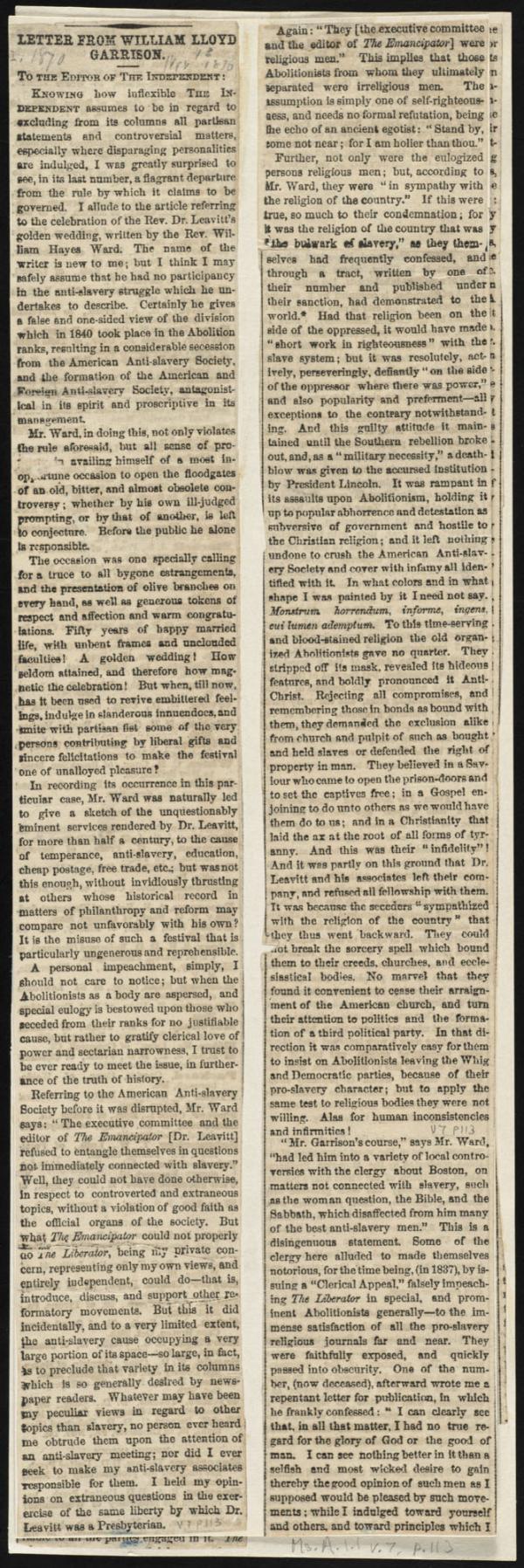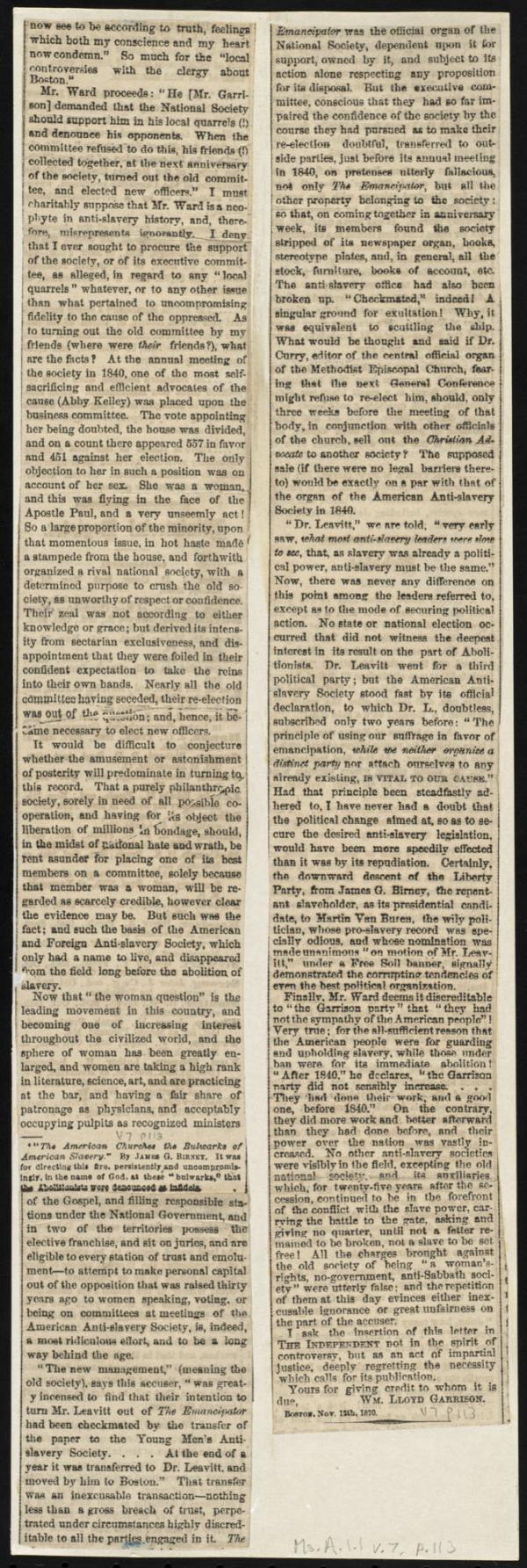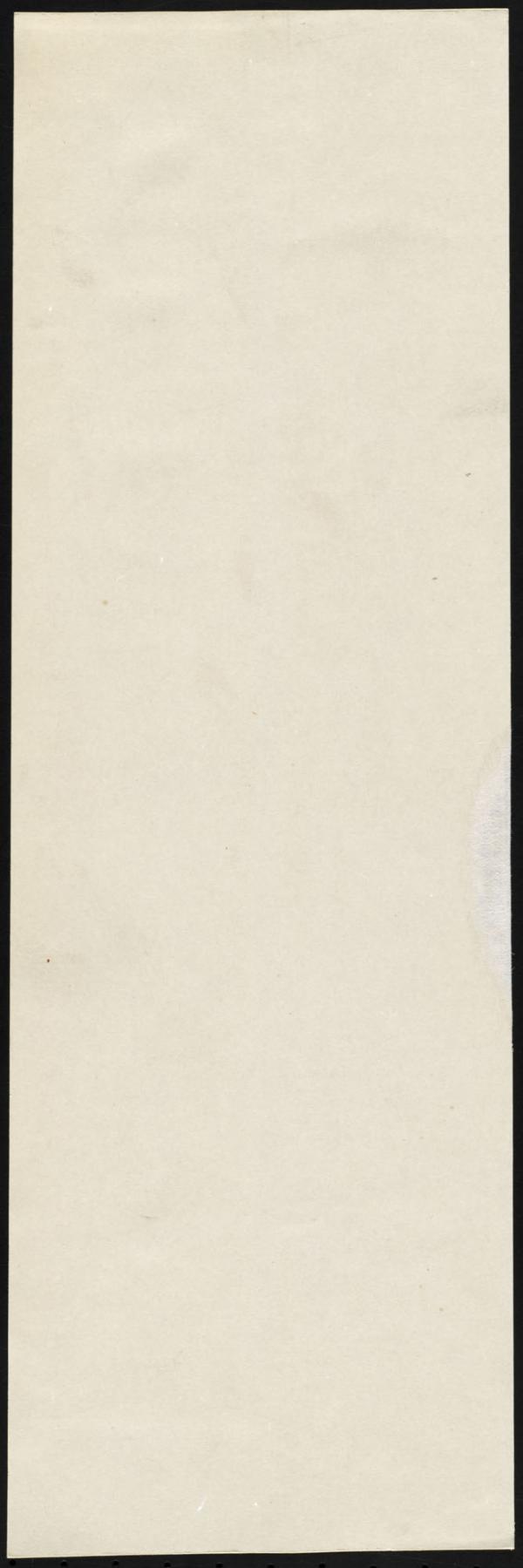Previous Letters from William Lloyd Garrison Next
Transcribe Text (Collaborative) Letters from William Lloyd Garrison page
date
"November 12, 1870"
notes
"Clipping (information artifact). William Lloyd Garrison resents Reverend William Hayes Ward's remarks on the reasons for the division in abolitionists' ranks at the time of the formation of the New Organization. Rev. Ward spoke at the golden wedding anniversary of Joshua Leavitt. Related: Independent (New York, N.Y. : 1848)."
title
"Letter from William Lloyd Garrison, Boston, [Mass.], Nov. 12th, 1870"
image1
"08_07_019560.jpg"
image2
"08_07_019561.jpg"
image3
"08_07_019562.jpg"
image4
"08_07_019563.jpg"
image5
""
image6
""
image7
""
image8
""
image9
""
image10
""
image11
""
image12
""
image13
""
image14
""
image15
""
image16
""
image17
""
image18
""
image19
""
image20
""
image21
""
image22
""
image23
""
image24
""
image25
""
image26
""
image27
""
image28
""
image29
""
image30
""
image31
""
image32
""
image33
""
image34
""
image35
""
image36
""
image37
""
image38
""
image39
""
image40
""
image41
""
image42
""
image43
""
image44
""
image45
""
image46
""
image47
""
image48
""
image49
""
image50
""
image51
""
image52
""
image53
""
image54
""
image55
""
image56
""
image57
""
image58
""
image59
""
image60
""
image61
""
image62
""
image63
""
image64
""
creators
"Garrison, William Lloyd, 1805-1879 (Author)"
group_ID
"15525"
language
"English"
publisher
""
internal_ID
"commonwealth:cv43r496c"
original_url
"http://ark.digitalcommonwealth.org/ark:/50959/cv43r496c"
#id_local_call
"Ms.A.1.1 v.7, p.113"
#repository_id
"commonwealth:cv43r496c"
#id_local_other
""
#id_local_barcode
"39999066755800; mq9008885"
#id_local_accession
""
physical_description
"2 leaves (2 p.) ; 15 x 2 1/4 in."
Previous Letters from William Lloyd Garrison Next



